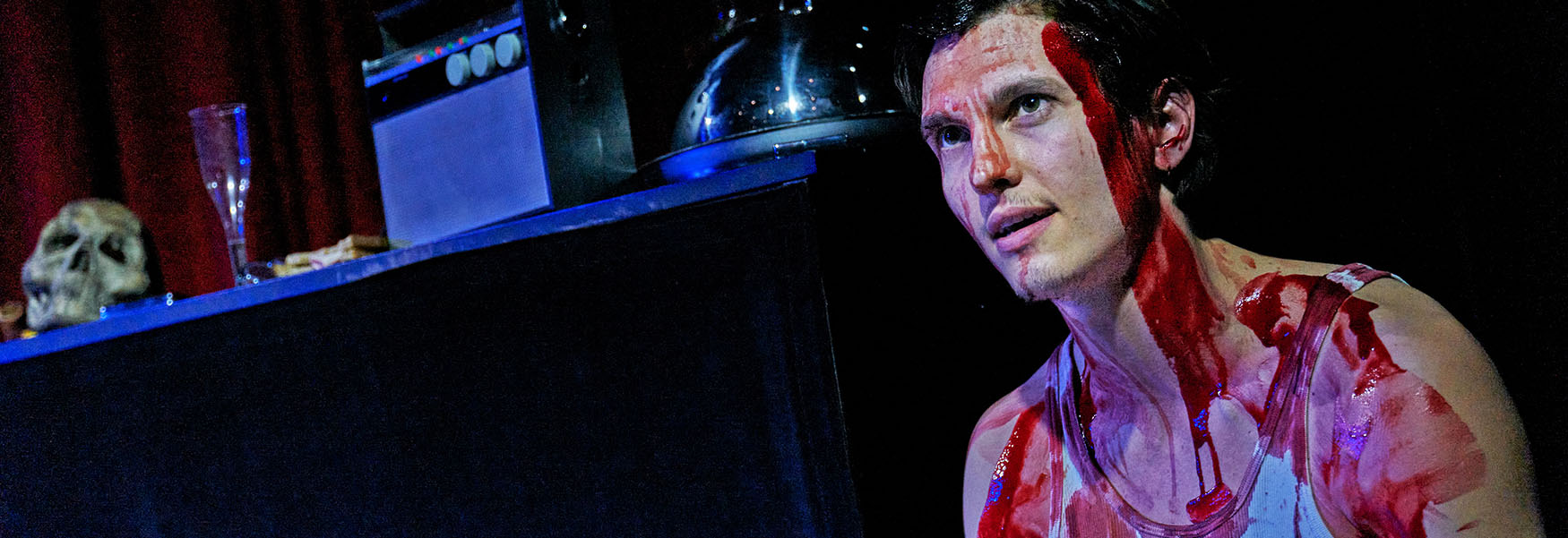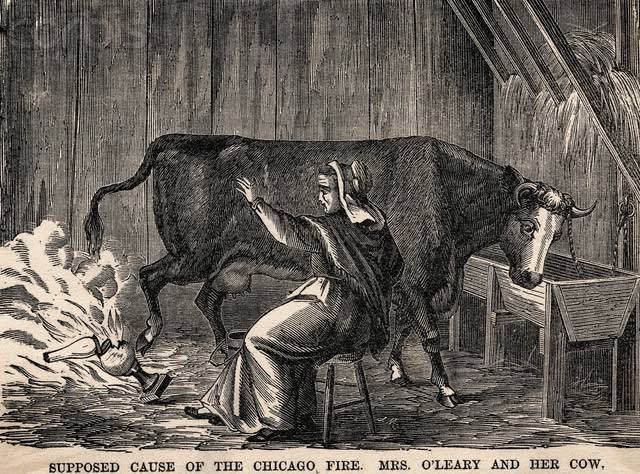The first English translation of Klaus Mann’s novel Mephisto begins with a line from Goethe, reading, “All men’s failings I will forgive in actors; no actor’s failings will I forgive in men.” It’s an apt quote not only for its sentiment, but also because Mann’s work takes its title from Goethe’s Faust; Mephistopheles is the devil-figure to whom Faust sells his soul. So too is Mephisto a tale of soul bargaining – in this instance the prize is a career in the theater and the price is a man’s political and moral integrity. Mann’s Mephisto serves as a searing indictment of artists who compromised their beliefs to attain success under National Socialism in Germany, originally penned three years into the reign of the Third Reich. In August 2021, the 1936 novel will enjoy new life in the form of a brand new theatrical adaptation at The Berliner Ensemble, directed by Till Weinheimer.
Mephisto blossoms in 2021 as a worthwhile and harrowing story not only in its overt political relevance, but also because of the tangled history concerning its conception and subsequent reception – a story that features at its heart one of Germany’s most famous actors (Gustaf Gründgens) and one of her most idiosyncratic queer legacies (Klaus Mann).
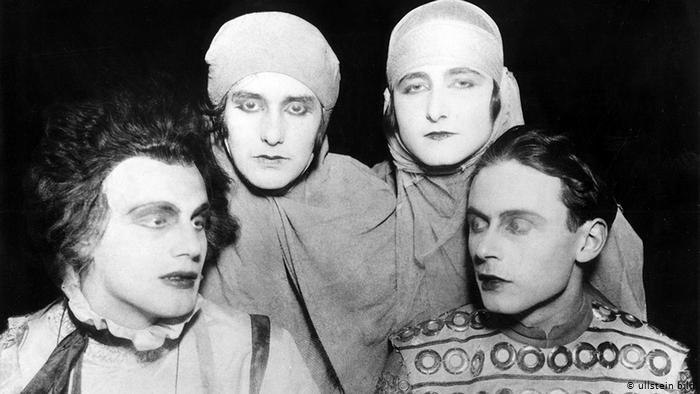
Klaus Mann was born to Katja Pringsheim and renowned modernist writer Thomas Mann in 1906, a year after his beloved sister Erika. By the time of Klaus’ birth, Thomas had already achieved a level of acclaim as a writer – and the family enjoyed a wealthy lifestyle, only mildly hampered by World War I. Klaus shared his father’s literary ambitions (and homosexuality), but the two experienced a consistently difficult and contentious relationship until Klaus’ death by suicide in 1949. Accounts vary on the exact mutation of this tension – they paint Thomas alternately as aloof, jealous, or downright incestuous towards his precocious and openly-queer son. Klaus’ autobiography The Turning Point, in turn, presents a gentler picture of the elder Mann, describing him as a mild, if detached person.
That the son of such a titanic literary figure should dare try to be a writer himself was not unnoticed by the populous, and much of Klaus’ early work was marked by a skepticism and irony from the press, who dubbed him a Dichterkind – the child of a famous writer incapable of living up to their parent’s greatness. Despite this general sardonism, Klaus enjoyed steady work as an actor, writer, and theater critic during the Weimar era. One of his most scandalous early pieces, Ania and Esther, played Hamburg in 1923, and it was during this time that the Manns’ became acquainted with Gustaf Gründgens, the titular devil of Mephisto. For indeed, although Klaus rejected the interpretation of Mephisto as a roman à clef, it is difficult not to see the work as a direct critique of Gründgens’ political complacency and moral compromise during the Nazi regime. The novel functions as a thinly veiled retelling of his rise in the National Socialist theater, with most characters in the work having direct real-life counterparts.
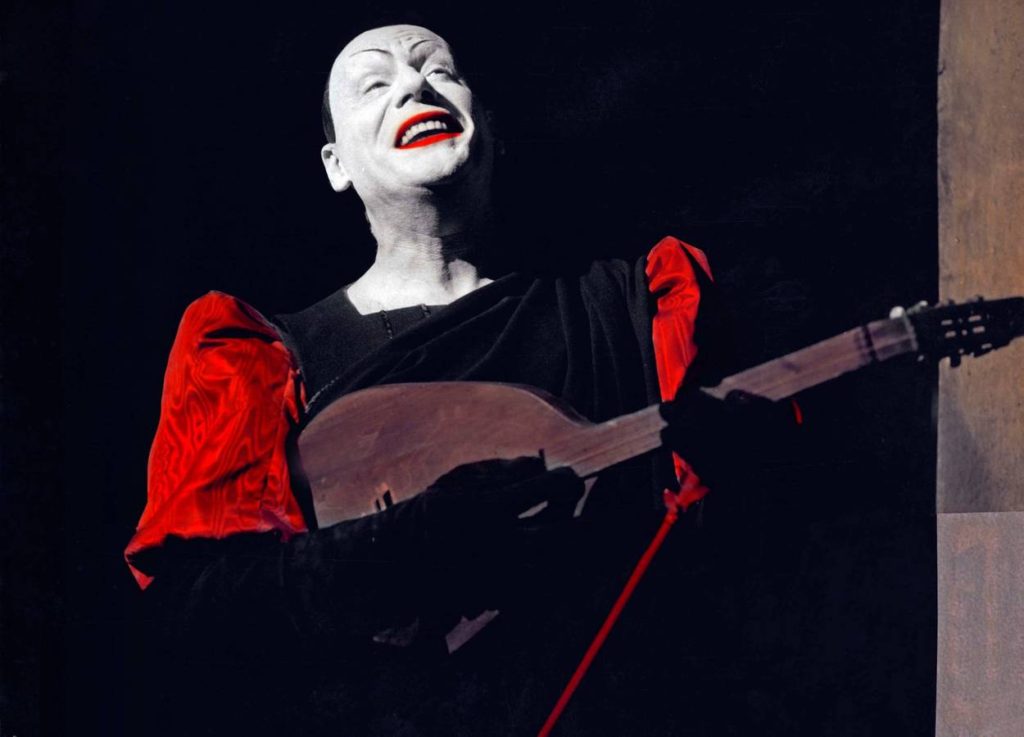
Even prior to the rise of Nazism, there had been a tension between the Manns and Gründgens; the former were distinctly bourgeois, while Gründgens came from a lower middle-class household — and coverage of their artistic collaborations often favored sensationalized accounts of the Mann children over mentions of Gründgens. (Indeed, the cover of October 1925’s “Berliner Illustrirte Zeitung” featured a photo of the group which cropped out Gründgens in favor of a second photo of the Manns.) To add to this complicated relationship, the openly-closeted Gründgens married Erika Mann in 1926 (overlapping a brief engagement between the openly-gay Klaus and Pamela Wedekind, daughter of Spring Awakening’s Frank Wedekind.)
“So intense was the fascination of his shameful glory that I decided to portray Mephisto-Gründgens in a satirical novel.”
– Klaus Mann on Gründgens
Erika Mann and Gründgens divorced in 1929, and the two factions suffered a permanent splintering over their respective attitudes towards the rising tide of fascism in Germany at the end of the Weimar Era. The ambitious Gründgens would renounce his formerly far-left politics, become an enormously successful actor under National Socialism, and eventually ascend to the role of artistic director of the State Theater under the Nazi Party’s reign. (It really was Gründgens’ portrayal of Mephistopheles in Faust that first caught Herman Göring’s attention.) Klaus and Erika Mann, meanwhile, remained openly antifascist and would flee Germany in exile, their citizenship revoked. Mephisto was consequently written in Amsterdam by Klaus. On the writing, Mann said, “I visualize my ex-brother-in-law as the traitor par excellence, the macabre embodiment of corruption and cynicism. So intense was the fascination of his shameful glory that I decided to portray Mephisto-Gründgens in a satirical novel. I thought it pertinent, indeed, necessary to expose and analyse the abject type of the treacherous intellectual who prostitutes his talent for the sake of some tawdry fame and transitory wealth.”
Mephisto, consequently, tells the story of a formerly-left-wing actor Hendrik Höfgen, and his ascent in the theater world under Hitler’s Third Reich. Many elements of the ascent mirror Gründgens, with his homosexuality being the only conspicuous omission. In the novel, Höfgen is never explicitly fascist, nor is he overtly malicious – instead it is his complacency, moral compromise, and fear of alienating his Nazi patrons that drive the violence wrought by his rise, which includes the torture of his communist friend and racist disownment of his Black mistress. Mann makes Höfgen’s villainy evident but passive. The actor eventually suffers a nervous breakdown and ends the piece in his mother’s arms, crying, “What do men want from me? Why do they pursue me? Why are they so hard? All I am a perfectly ordinary actor…” And so Mephisto serves as something of a straightforward morality tale which hurtles towards the notion that there is no such thing as an apolitical actor, that there is immense violence in ambition-based silence.
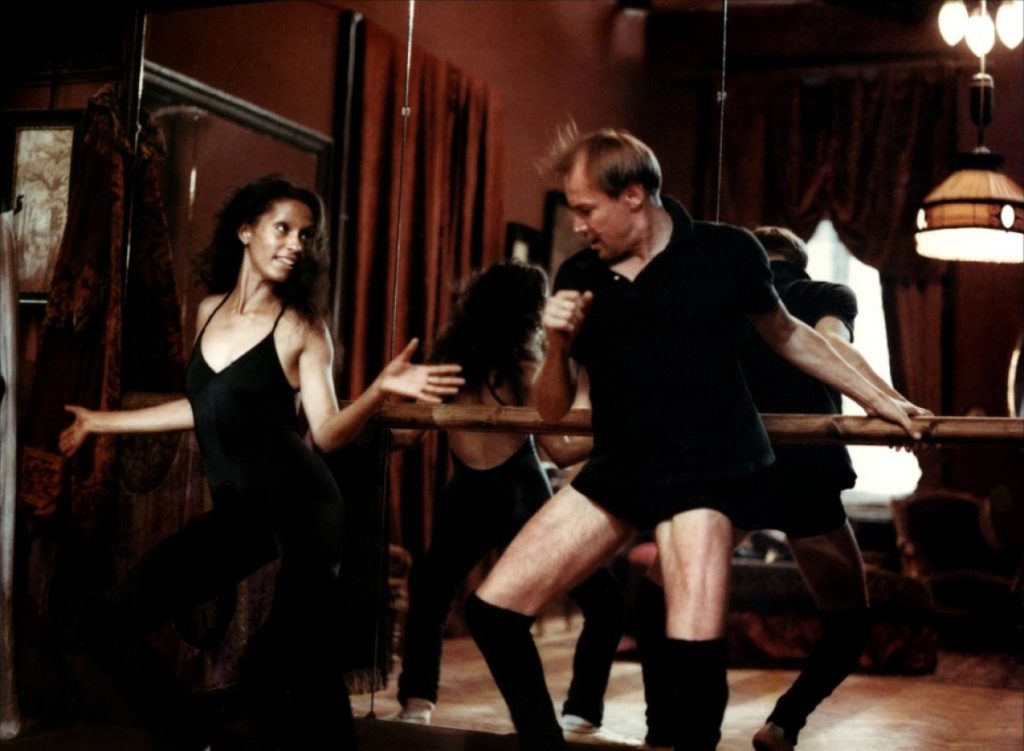
Mephisto’s post-publication history is no less vivid than the events leading up to its conception. In the early-sixties Grüdgens’ adopted son would raise a lawsuit against the West German publisher of Mephisto that would stretch into the longest lawsuit in the history of German publishing. The Nymphenburger Verlagsbuchhandlung publication of the book would eventually be banned in West Germany by court order in 1971, in a milestone case of freedom of artistic expression versus defamation of character. (Mephisto’s German banishment during National Socialism goes without saying.) In 1981, just ten years after this banishment, a joint Hungarian-German film adaptation of Mephisto would premier in Germany, directed by István Szabó and adapted by Szabó and Peter Daibo. The film received the Academy Award for Best Foreign Language Film and the Best Screenplay Award at the 1981 Cannes Film Festival.
A work so concerned with the stage and the power (or lack thereof) of actors, Mephisto is no stranger to theatrical adaption. Previous prominent adaptations include Ariane Mnouchkine’s 1980 French staging (subsequently translated into English by Timberlake Wertenbaker in 1986), a Bengali adaptation by Suman Mukhopadhyay which emerged in 2002 and subsequently re-emerged in 2012, an adaption in 2014 in Hamburg by Helen Edmundson, and (most recently) a free-adaptation by Samuel Gallet entitled Mephisto [A Rhapsody].
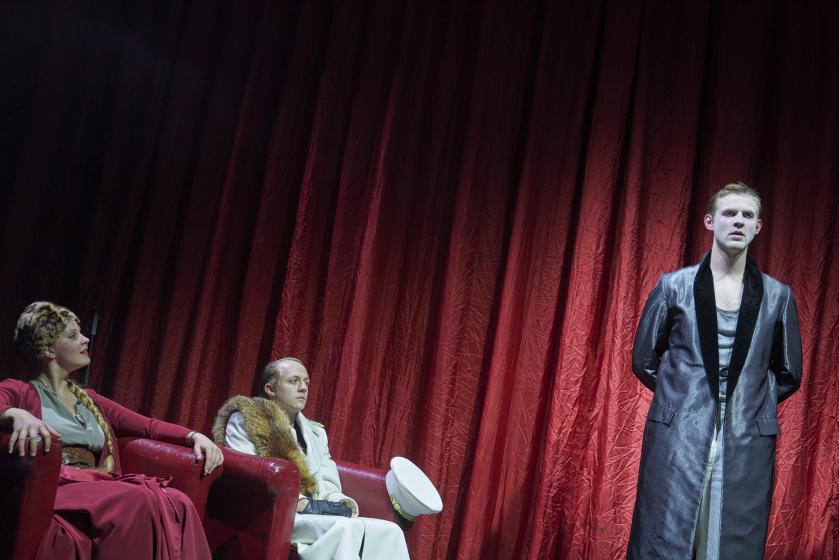
The Berliner Ensemble adds to this adaptation canon on August 20th with their Mephisto, a co-production between the ensemble and the Ernst Busch Academy of Dramatic Art. The reworking follows in the footsteps of Mnouchkine and Gallet in welcoming radical theatricality to their version piece, which blends short episodic movements, original music by Chris Weinheimer, and a cast of five actors portraying multiple characters. It is to be performed in their “Neues Haus” by second-year actors from the Ernst Busch Academy and comes to the stage after of series of talks and workshops hosted by director Til Weinheimer and dramaturg Karolin Trachten. Mephisto additionally features costumes by Sibylle Gädeke and lighting by Arnaud Poumarat. More information on the production can be found on the Berliner Ensemble’s Website.
A 2021 Mephisto is a curious thing. It’s staying power plainly arises from its eerie and omnipresent timeliness, which feels especially saturated today given the questions arising in the world around artistic responsibility and autonomy within an immoral political structure, especially tempered against the financial reality of living as an artist. At what point does the scale tip, is it no longer ethical to contribute to a country’s theatrical system? Mephisto and its macrotextual story also touch on immediate questions surrounding the protection of troubling personal legacy versus freedom of speech, the staging of difficult histories, and legacies of anti-black racism within different world governments. Margaret Atwood herself cited the novel in a September 2020 New York Times article as especially present. The Berliner Ensemble and the five students of the Ernst Busch Academy undoubtedly have their work cut out for them.
To learn more about The Civilians and to access exclusive discounts to shows, join our email list at TheCivilians.org.
Author
-

James La Bella (he/him) is a writer and performer from New England. He earned his BFA from Emerson College, with additional coursework completed at Harvard University. Jameslabella.com


